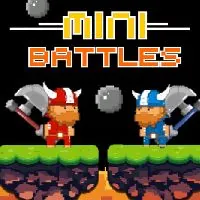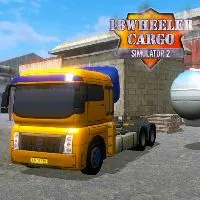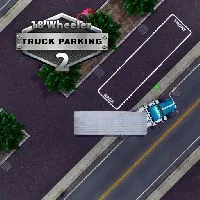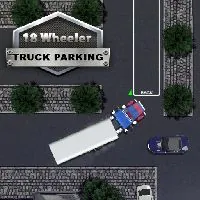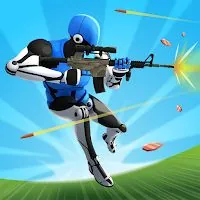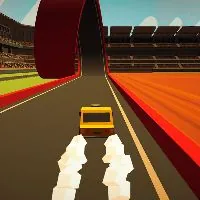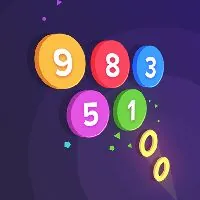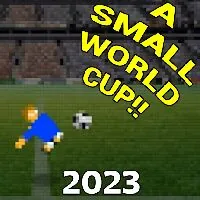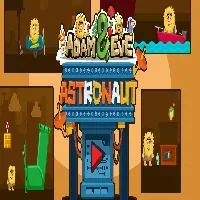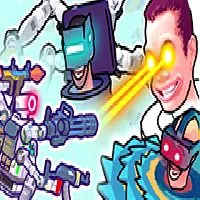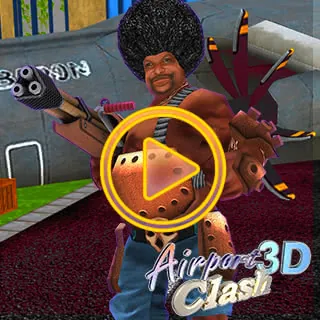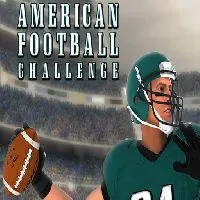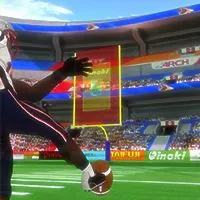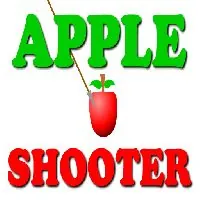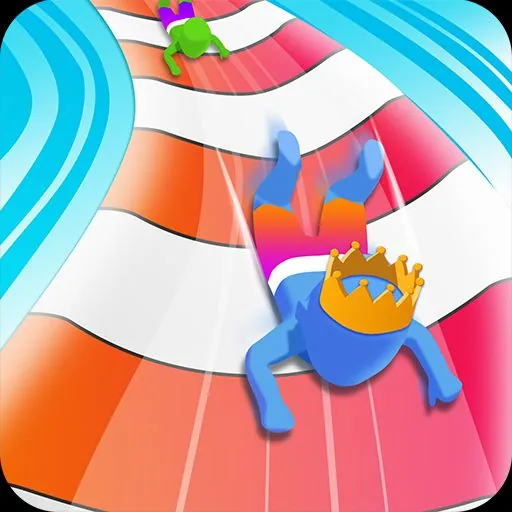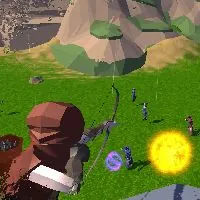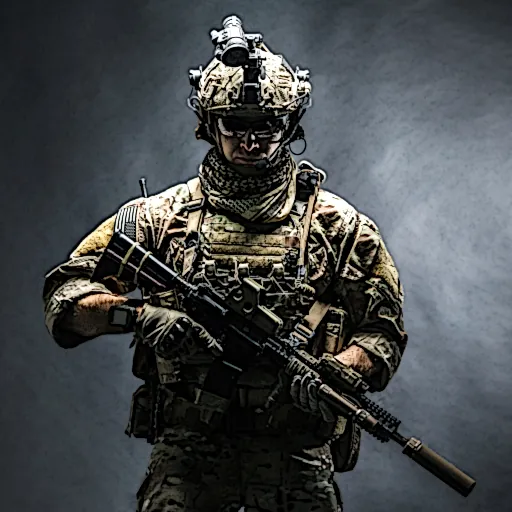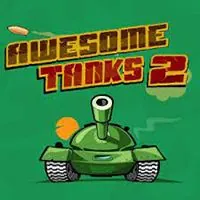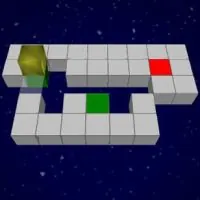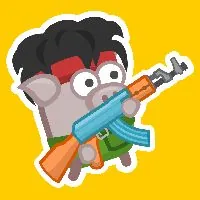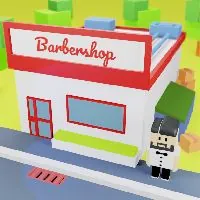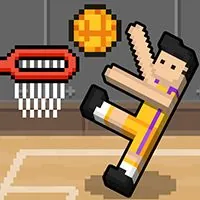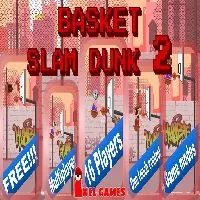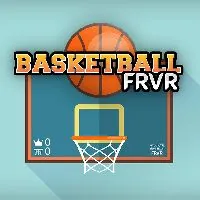QUICK GUN
SIMILAR GAMES
Description
Quick Gun - GitLab Games
About Quick Gun - GitLab Games
We delve into the exciting world of Quick Gun, a distinctive offering within the broader landscape of GitLab Games. This particular game represents a fascinating intersection of speed, precision, and strategic thinking, all designed to be accessible and engaging for a wide audience. Our exploration focuses on what makes Quick Gun a compelling experience for developers, gamers, and anyone interested in the innovative applications of technology in entertainment. We are committed to providing a comprehensive overview, highlighting the core mechanics, the developmental ethos, and the unique player experience that sets Quick Gun apart.
Understanding the Core Gameplay of Quick Gun
At its heart, Quick Gun is a testament to elegant game design, where simplicity belies a surprising depth of strategy. The fundamental premise revolves around rapid-fire engagements, demanding swift reflexes and an acute understanding of spatial awareness. Players are typically tasked with eliminating targets or navigating challenging environments within strict time constraints. The "quick" in Quick Gun is not merely a descriptor but a core gameplay mechanic. Every action, from movement to firing, must be executed with utmost efficiency. Success hinges on mastering the game's control scheme and anticipating enemy movements or environmental hazards with unparalleled speed. We observe that the game encourages a trial-and-error learning process, where each attempt refines the player's approach and sharpens their reaction times. The visual feedback is designed to be immediate and impactful, ensuring that players understand the consequences of their actions without delay. This direct correlation between input and outcome is a cornerstone of the game's addictive nature. Furthermore, the challenges presented in Quick Gun are often dynamic, preventing stagnation and continuously pushing players to adapt their strategies. The scenarios are crafted to test different facets of player skill, ensuring that a well-rounded proficiency is rewarded. We believe that this focus on immediate gratification and skill-based progression is a key reason for its appeal.
Key Mechanics and Player Interaction
The player interaction within Quick Gun is characterized by its responsiveness and intuitive design. Controls are typically mapped to actions that facilitate rapid execution, allowing for seamless transitions between aiming, shooting, and maneuvering. We have identified that the game often employs a minimalistic control set, ensuring that players can focus on the action without being bogged down by complex button combinations. This approach makes Quick Gun approachable for newcomers while still offering a high skill ceiling for veterans. The aiming system, a crucial element, is designed for both speed and accuracy. Whether employing a mouse for precise targeting or a gamepad for fluid movement, players can expect a system that translates their intentions directly into on-screen actions. The shooting mechanics themselves are equally critical. The feel of the weapon, the impact of the shots, and the ammunition management are all finely tuned to contribute to the overall tactical experience. Players must not only be quick to fire but also judicious in their shot placement, conserving ammunition while maximizing damage output. We recognize that the game's scoring system often rewards precision, encouraging players to aim for critical hits and efficient takedowns. This layered approach to scoring adds another dimension to the gameplay, promoting replayability as players strive to achieve higher scores and better performance metrics. The environment in Quick Gun also plays a pivotal role, often featuring interactive elements or strategic cover points that players can utilize to their advantage. Understanding the layout of each arena or level is as important as mastering the combat mechanics. We have observed that the game frequently incorporates dynamic elements such as moving platforms, destructible objects, or environmental hazards that can alter the course of a match, requiring constant vigilance and adaptation from the player. The sound design is another often-underestimated aspect of Quick Gun. Distinct audio cues signal incoming threats, successful hits, and successful completion of objectives, providing crucial information that complements the visual feedback. This comprehensive sensory experience is designed to immerse players fully in the fast-paced action. We believe that the harmonious integration of these mechanics creates a truly engaging and replayable gaming experience.
The GitLab Games Ecosystem and Quick Gun's Place
Quick Gun is an integral part of the larger GitLab Games initiative, a project that aims to foster innovation and collaboration within the software development community through the creation and sharing of games. GitLab Games serves as a platform where developers can showcase their talents, experiment with new technologies, and contribute to a vibrant ecosystem of interactive applications. Within this context, Quick Gun stands out as a prime example of what can be achieved when creative vision meets technical expertise. We understand that GitLab Games encourages an open-source approach to game development, allowing for community contributions, bug fixes, and feature enhancements. This collaborative spirit means that Quick Gun, like other titles within the ecosystem, can evolve and improve over time, driven by the collective efforts of its users. The accessibility of the GitLab platform itself makes it easier for developers to host, manage, and distribute their games, lowering the barrier to entry for aspiring game creators. We find that this democratizing effect is a significant aspect of the GitLab Games project, enabling a diverse range of games, including those focused on rapid gameplay like Quick Gun, to find an audience. Furthermore, the integration with GitLab's core functionalities, such as version control and issue tracking, provides a robust framework for game development workflows. This allows for efficient iteration and management of game projects, ensuring that the development process is as streamlined as possible. The emphasis on practical application of coding skills through game development is a unique educational and professional development tool. Quick Gun, with its clear objectives and engaging mechanics, serves as an excellent project for individuals looking to hone their programming abilities in a fun and rewarding context. We believe that by participating in the GitLab Games ecosystem, developers not only build exciting games but also gain valuable experience that can be applied to other software engineering challenges. The community aspect is also paramount. Forums, discussions, and collaborative repositories associated with GitLab Games provide a space for developers to share insights, troubleshoot problems, and inspire one another. This collaborative environment is crucial for the growth and success of individual projects like Quick Gun, fostering a sense of shared purpose and collective achievement. We see Quick Gun as more than just a game; it's a product of a dynamic and forward-thinking development philosophy.
Innovation and Community Collaboration in Development
The development of Quick Gun, within the GitLab Games framework, is characterized by a strong emphasis on innovation and community collaboration. This approach allows for rapid iteration and the integration of novel ideas, pushing the boundaries of what might be expected from a game developed in this manner. We observe that the open-source nature of GitLab Games means that the source code for Quick Gun is often accessible, inviting contributions and feedback from a global community of developers. This collaborative process can lead to unexpected but highly beneficial improvements, whether in terms of gameplay mechanics, graphical enhancements, or performance optimization. Developers can fork the project, experiment with new features, and submit their changes for review, fostering a dynamic and evolving codebase. This decentralization of development power ensures that Quick Gun benefits from a wide array of perspectives and skill sets. The challenges inherent in developing a game that demands speed and precision are met through rigorous testing and iterative refinement. We have seen that community members often play an active role in identifying bugs, suggesting balance adjustments, and proposing new content ideas. This direct line of communication between developers and players ensures that the game remains engaging and addresses the desires of its user base. The technological stack employed in the development of Quick Gun is also a subject of ongoing innovation. Developers are encouraged to experiment with different programming languages, game engines, and libraries, leveraging the most efficient and effective tools for the task. This exploration of technology not only benefits Quick Gun but also contributes to the broader knowledge base of the GitLab Games community. We believe that this commitment to exploring new technological avenues is what keeps titles like Quick Gun at the forefront of accessible, high-quality game experiences. The structured environment provided by GitLab, including its robust version control and issue tracking systems, facilitates this collaborative innovation by providing clear pathways for managing contributions and tracking progress. This systematic approach ensures that even as the community grows and contributes, the development process remains organized and efficient. We find that this blend of open collaboration and structured development is a powerful engine for creating compelling games.
The Player Experience and Replayability of Quick Gun
The player experience in Quick Gun is designed to be immediately satisfying and to encourage prolonged engagement through high replayability. From the very first moment, players are thrust into action, with minimal onboarding required to grasp the core mechanics. The game's intuitive controls and clear objectives mean that players can quickly start enjoying the thrill of rapid-fire combat and precise execution. We believe that this immediate accessibility is crucial for attracting and retaining players. The challenge presented by Quick Gun is multifaceted. It's not just about reflexes; it's also about strategy, pattern recognition, and resource management. Players must learn the nuances of each level, the timing of enemy attacks, and the optimal use of their available weaponry. This depth ensures that even after numerous playthroughs, there are always opportunities for improvement. We have observed that the scoring system often plays a significant role in enhancing replayability. Achieving higher scores, unlocking new achievements, or competing on leaderboards provides a strong incentive for players to revisit the game and hone their skills. The pursuit of perfection, of achieving the fastest times or the highest accuracy, becomes a compelling goal in itself. The dynamic nature of some game elements further contributes to replayability. Randomized enemy placements, environmental changes, or varied objective sequences ensure that no two playthroughs are exactly alike. This unpredictability keeps the gameplay fresh and prevents players from simply memorizing solutions. Instead, they must constantly adapt and react to the unfolding situation. We also find that the game often offers different difficulty settings or game modes, catering to a wider range of player skill levels and preferences. Whether a player seeks a casual experience or a hardcore challenge, Quick Gun can often accommodate. The visual and audio design also contribute to the immersive experience, providing clear feedback and an engaging atmosphere that draws players into the game world. The satisfaction derived from flawlessly executing a sequence of rapid shots or navigating a treacherous obstacle course with split-second timing is a powerful motivator. We believe that the carefully crafted feedback loops within Quick Gun, rewarding skillful play and encouraging mastery, are key to its enduring appeal and its capacity to keep players coming back for more. The continuous refinement of the game, driven by community feedback, also ensures that its replay value is consistently enhanced.
Achieving Mastery and Continuous Improvement
The journey to mastery in Quick Gun is a continuous process of learning, adaptation, and refinement. The game is structured in a way that rewards dedication and an analytical approach to gameplay. Players who are keen on improving will find that Quick Gun offers ample opportunities to hone their skills. We have noted that initial gameplay might focus on survival and basic target acquisition. However, as players become more comfortable, they begin to explore the more subtle aspects of the game, such as optimizing movement, understanding enemy patrol patterns, and maximizing damage output through precise aiming. The game encourages players to analyze their performance, often providing statistics or replays that highlight areas for improvement. This self-reflection is a crucial step in the progression towards mastery. We believe that the best players of Quick Gun are those who not only possess quick reflexes but also a strategic mind, capable of anticipating challenges and formulating effective responses. The game's difficulty can often be scaled, allowing players to gradually increase the complexity of the challenges they face, thereby pushing their abilities further. This tiered approach to difficulty ensures that players are consistently challenged without becoming overwhelmed. We have observed that the community surrounding Quick Gun often shares tips, strategies, and advanced techniques, further aiding players in their pursuit of mastery. Participating in discussions or watching expert gameplay can provide invaluable insights into efficient methods and hidden mechanics. The satisfaction derived from executing a particularly difficult maneuver flawlessly or achieving a personal best score is a significant motivator for continued practice. We find that the game's design inherently fosters a cycle of practice, performance, and improvement, making the process of becoming a skilled player both rewarding and engaging. The iterative nature of game development within GitLab Games also means that new challenges or refinements may be introduced, offering fresh opportunities for experienced players to test and further develop their mastery. The pursuit of perfection in Quick Gun is an ongoing adventure, offering deep satisfaction for those who invest the time and effort.
Future Prospects and Evolution of Quick Gun
The future of Quick Gun, as part of the evolving GitLab Games ecosystem, holds significant promise for continued innovation and expansion. Given the dynamic nature of open-source development and the inherent creativity of the community, we anticipate that Quick Gun will likely see a range of exciting enhancements and new features emerge over time. The platform's commitment to fostering collaborative projects means that the game is well-positioned to benefit from fresh ideas and the implementation of cutting-edge technologies. We foresee potential for the introduction of new game modes, offering diverse challenges that cater to an even broader player base. Imagine modes that focus on cooperative play, strategic defense, or even completely different gameplay paradigms that still leverage the core "quick gun" mechanics. Furthermore, advancements in graphics and audio technology could lead to a more immersive and visually stunning experience, without compromising the game's accessibility or speed. The integration of more sophisticated AI for enemy behaviors could also significantly increase the challenge and strategic depth, forcing players to constantly adapt their tactics. We also believe that the community's engagement will drive the development of new levels and environments, each presenting unique obstacles and opportunities for players to test their mettle. These new arenas could explore varied themes and introduce novel gameplay mechanics that build upon the established foundation. The potential for cross-platform compatibility could also be explored, making Quick Gun accessible to an even wider audience across different devices and operating systems. This would significantly broaden its reach and impact within the gaming community. We are confident that the principles of iterative development and community feedback that have guided Quick Gun thus far will continue to shape its evolution, ensuring that it remains a compelling and engaging experience for years to come. The adaptability of the GitLab Games framework provides a robust foundation for such growth, enabling developers to experiment and implement new ideas efficiently. We are excited to see how Quick Gun will continue to develop and what new innovations will emerge from its vibrant community. The ongoing exploration of what is possible within the realm of fast-paced, skill-based gaming ensures that Quick Gun has a bright and dynamic future ahead.
Play Quick Gun for free on GitLab Games, where we offer a dynamic platform featuring thousands of the best unblocked games online. Our extensive library ensures pure enjoyment with an ad-free experience, keeping you immersed in the action without distractions. Accessible from school, work, or home, our Gitlab games deliver seamless fun anywhere you are. We’ve streamlined the experience—play effortlessly with your keyboard or a simple click, tailored to how you like to game. Dive into our collection of unblocked games, including popular categories like unblocked games 66, unblocked games wtf and cool math games Gitlab, and enjoy entertainment that’s always within reach and endlessly captivating.
